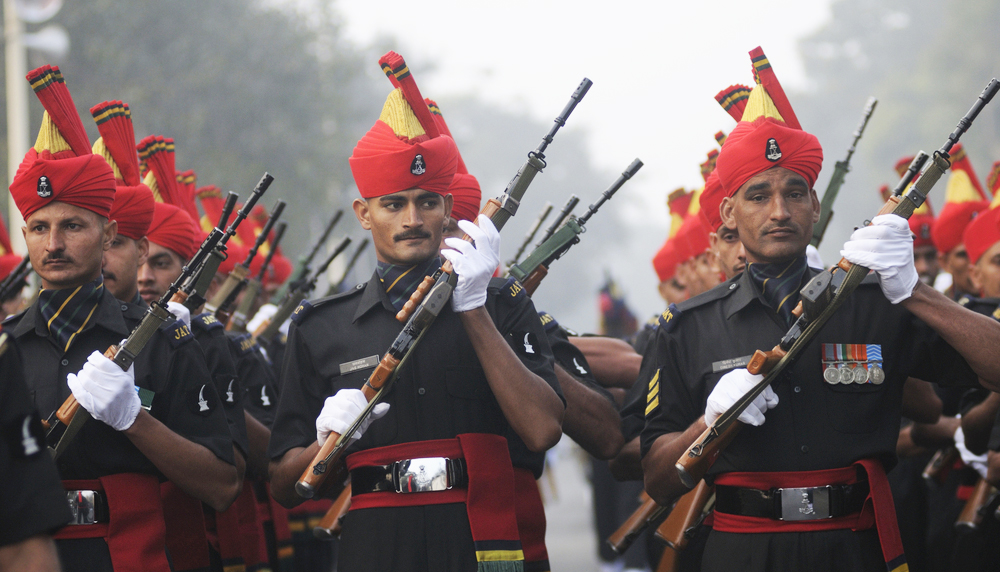The Supreme Court’s order to fill up vacancies in armed forces tribunals has brought hope to many martyrs’ families, widows and disabled soldiers for they can now expect early adjudication of their cases. Created in 2009, the AFT had brought relief to many serving and retired army, navy and air force personnel. Cases that had been pending in various courts for decades were adjudicated upon. It was extremely effective with almost a record number of case disposals. But AFT members began to be reduced by end-2016 till they came down to 50 per cent. Now against the authorization for 17 judicial and 17 administrative members, there are only eight judicial and eight administrative members (two of these members are slated to retire by mid-May 2019).
In June 2017, the government notified the Tribunal, Appellate Tribunal and other Authorities (Qualifications, Experience and other Conditions of Service of Members) Rules, 2017 in the Gazette of India. The rules, effective from June 1, amended existing ones, including the Armed Forces Tribunal Act, giving wide-ranging powers to the government regarding appointment and removal of tribunal members. The validity of these have been challenged in the Supreme Court.
In 1982, the Supreme Court held that the absence of even one forum of appeal with the power to review evidence, legal formulation, conclusion and adequacy or otherwise of punishment in the laws relating to the armed forces was a distressing lacuna. It urged the government to change this. The armed forces tribunal bill was passed by both houses of Parliament and received assent of the president on December 20, 2007. The AFT with 15 benches was finally raised in 2009; subsequently two more benches came up. It fortified the trust of members of the three services and their families in the system of dispensation of justice with respect to service matters and cases pertaining to court martial.
The quick dispensation of justice was made possible by the unique composition of the bench which comprised a retired high court judge and a retired member of the armed forces: one member an expert in the legal field and the other a repository of military law, customs, value system, service conditions and policies.
Military law takes cognizance of offences such as desertion, absence without leave, disobedience and dereliction of duty. It is essential that the military justice system be decisive to prevent degradation in effectiveness and cohesion. So an administrative member from the forces was considered necessary in the AFT. Besides, the armed forces do not form part of the government and there is no institutional mechanism for interaction with the political leadership. Often issues pertaining to pay, pension and allowances are not satisfactorily resolved. Personnel feel that various provisions of government policies relating to financial benefits are not always fairly executed by civil officials. The AFT provided a platform to raise grievances about service matters and decisions of the authorities concerned.
But the changes inculcated by the 2017 rules will change the AFT’s basic structure and affect its functioning. According to provisions in the AFT Act, only a retired judge of the Supreme Court or a retired high court chief justice could be appointed chairperson; now a serving judge or any person qualified to be a Supreme Court judge can be appointed. Administrative members were earlier restricted to retired major generals and above or equivalent ranks in the two other services and retired advocate generals. The 2017 Rules require any person “of ability, integrity and standing having special knowledge of, and professional experience of not less than twenty years in, economics, business, commerce, law, finance, accountancy, management, industry, public affairs, administration or in any other matter which in the opinion of the Central Government, is useful to the Armed Forces Tribunal” for that position. No expertise in military law, ethos and functioning is wanted.
The Supreme Court directions state that the selection committee for appointments should be balanced with members from both the judiciary and the executive. But the Rules of 2017 allow the government to usurp powers pertaining to the appointment and removal of AFT members, allocating greater powers to the defence ministry in both. This will have an impact on the judiciary’s independence and even on judgments in important cases. The new rules say that the AFT will function under the ministry of defence. The Supreme Court had earlier directed a longer tenure for members without provision for re-appointment to ensure independence in passing judgment; the new rules have decreased the tenure to three years and provided for re-appointment by a selection committee of which the defence secretary is a member. Yet it is the defence secretary who is the first respondent party in all litigation in the AFT. Judicial members have also been downgraded to Group A officers of the Central government. This will degrade the status of the appointees and deter good judges from wishing to be members of the AFT.
These amendments are unjustified and unconstitutional. Articles 136 and 227 of the Constitution make clear that the superintendence of the Supreme Court and high courts shall not extend to any judgment, determination, sentence or order passed by any court or tribunal constituted by or under any law relating to armed forces. Also, the rules are in breach of the Supreme Court’s verdicts. The bureaucracy, which has always denied the armed forces their legitimate rights, is now endeavouring to make the AFT ineffective. It will become another example of the government’s apathy towards the armed forces and their families. In the interest of soldiers, sailors and airmen, it is extremely important that there should be no change in AFT rules, especially in the criteria for the appointment of administrative members, and all vacancies should be filled as soon as possible.











